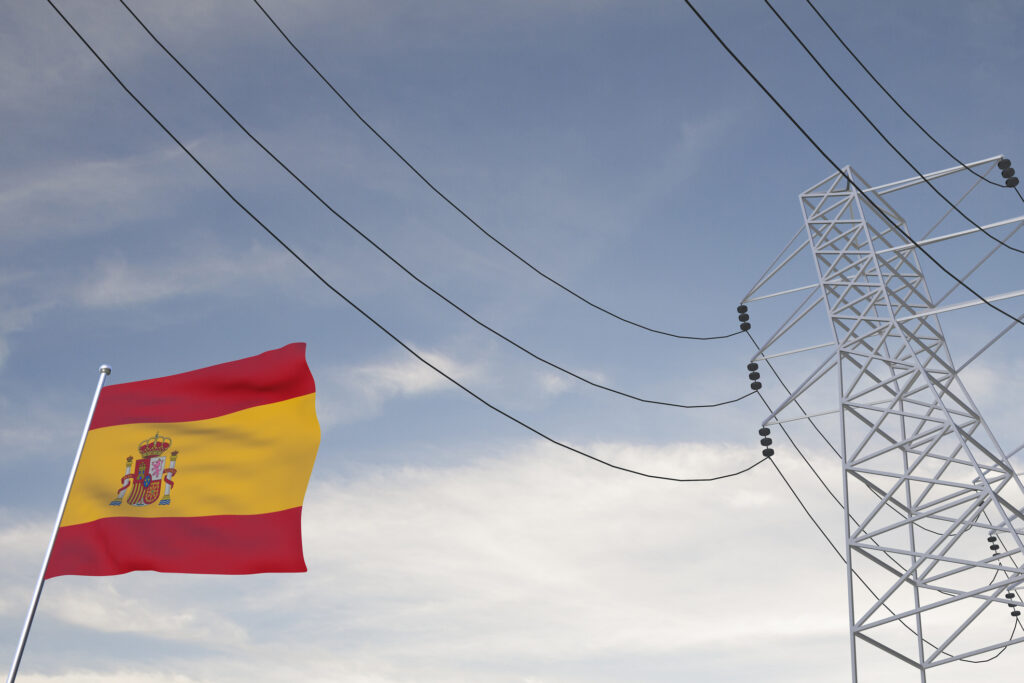With every passing day, the Russo-Ukrainian war becomes more of a huge human tragedy. The Ukrainian government admits that at least 3,000 of their military personnel have died, so far, in the conflict. According to the United Nations, there have been approximately 2,000 Ukrainian civilian deaths, but other sources suggest that actual number is thousands more, as bodies are found under the rubble of bombed cities. At the same time, the UN estimates that over 5 million Ukrainians have now fled for refuge in other European countries. At least another 7 million are displaced inside Ukraine due to the fighting.
The Russian government says that less than 1,500 of their soldiers have been lost since their invasion of Ukraine began on February 24, 2022. NATO and Ukrainian estimates raise that number to be anywhere between 7,000 to 15,000 Russian soldiers who have died. During the entire ten years that the Soviet Union fought in Afghanistan, from 1979-1989, Moscow admitted that around 15,000 of their military personnel were killed. If the NATO estimate is anywhere closer to the truth, two months of war in Ukraine is coming near to the number of Soviet soldiers killed in that earlier decade of fighting.
Television news and social media have daily shown the degree of physical destruction in Ukraine due to Russian artillery and aerial bombardment. Large areas of Ukrainian cities, towns and villages have been extensively or, seemingly, even totally destroyed. Multi-level apartment blocks, individual homes, government and industrial buildings and facilities, roads and bridges and railway facilities lying in ruins resemble those old pictures of completely bombed out cities in central and eastern Europe during the Second World War.
For right now, the Ukrainian government estimates that the physical reconstruction of the country after the war will cost somewhere upwards of $565 billion. Some independent estimates already place that figure closer to $1 trillion. Ukraine’s entire Gross Domestic Product (GDP) in 2020 only came to $155.5 billion.
The War in Ukraine is Putin’s War
Both Ukraine and Russia are paying a very high price for the ideology of political nationalism and cultural collectivism. Saying this is the case with both countries is not to claim an ethical equivalence as to who is responsible for the military conflict. Russian president Vladimir Putin made the decision to mass a huge military force on the Ukrainian border; he more than once made the false claim that he had no intention of invading Ukraine; and then he ordered the attack that has caused all this human and physical destruction.
Reasonable arguments have been made that U.S. and NATO policy goals in expanding NATO membership into the former Soviet-bloc countries of Eastern Europe in the 1990s, and then extending the hope of such member to Ukraine was likely to bring about some types of negative and counter-acting reactions from Moscow. After all, a series of informal promises had been made to Soviet and post-Soviet Russian leaders that no such expansion was planned or would occur.
But, nonetheless, the burden for this tragedy falls on no other shoulders than Vladimir Putin. He may say that the West conjured up a political coup in Kyiv in February 2014 that removed a Ukrainian president friendlier to Moscow. He may assert that NATO has held out membership to Ukraine and the Republic of Georgia as part of America’s conspiracy to “destroy” Russia. He may declare that the majority of people in Crimea and the Donbass region in eastern Ukraine consider themselves Russian rather than Ukrainian due to the primary language they speak (there are no meaningful ethnic differences between the two peoples). And Putin may insist that there is no such thing as a separate Ukrainian nation, and therefore consider Ukraine to be a historically and culturally a subdivision of a greater Russia. But he is the one that initiated the military conflict with all of its catastrophic consequences.
Countries Plundered by Russia Have Not Demanded Lands Back
Following the breakup of the Soviet Union at the end of 1991, the 14 constituent republics of the Soviet Union each became an independent nation-state, based on the Soviet boundaries between them at that time, including Ukraine. Newly independent Estonia and Latvia did not demand the return of border areas that Stalin has transferred to the Soviet Russian Federation after the Soviet annexation of those two countries in 1940. Neighboring Finland did not insist upon a return of the large Finnish border territories taken by Stalin at the end of the Soviet-Finnish war of 1939-1940.
Germany did not say that Kaliningrad (the part of former German East Prussia annexed by the Soviet Union at the end of World War II) be return to the, now, reunified German state. The Mongolian Republic has not called for the return of the border province of Tannu Tuva that Stalin annexed into the Soviet Union in 1944. Nor have the Japanese made a claim for a return of the southern half of Sakhalin Island and the full Kurile Islands taken by Stalin from Japan in 1945.
Only Vladimir Putin insists that the greatest tragedy of the 20th century was the demise of the Soviet Union. Only Vladimir Putin asserts the right to use military force and intimidation to change political boundaries along Russia’s borders. Only he demands the Russian-enforced “cleansing” of Ukraine through the “de-Nazification” of all those in the Ukrainian government who he dislikes, so he can place others in power who will more placidly do Moscow’s bidding. This war is Putin’s war, pure and simple.
Ukraine’s Domestic Linguistic and Cultural Imperialism
But the fact remains that the Ukrainian government also has been nationalist and culturally collectivist, though without the foreign imperialist and military ambitions of the Russian government. There is a sizable majority of Russian-speaking people in the Crimea, in parts of the Donbass region and other areas in eastern Ukraine. Following the coup of February 2014, the new Ukrainian government instituted a variety of laws making the Ukrainian language the primary language in all of Ukraine, including in education. And there has been the attempt to make Ukrainian the leading language used in print media and in business transactions
Ukrainian nationalists were giddy with desire to reverse centuries of forced Russification under both the Czars and the Soviets. Those who preferred to or felt more comfortable speaking Russian clearly chaffed under these legal rules and restrictions. Of course, none of this would or could have come up as points of tension if education, the media and the economy had been fully private and separate from government control or influence. But when such institutions are in the hands of those in government, then political monopoly power rather than personal and individual choice ends up dictating curriculum and informational content, including the language in which it is conveyed.
On top of this, there were a good number of Russian-speaking people in these areas of Ukraine who felt more culturally connected with neighboring Russia, and who would have even preferred to be Russian citizens, if they had had the opportunity to express their political preference. But the Ukrainians were adamant that no changes would be permitted in the internationally recognized boundary lines between Ukraine and its neighbors, including, most certainly, Russia. If a majority of residents in Crimea wanted to be incorporated into the Russian Federation, instead, then it would require a referendum of all the people of Ukraine in deciding if the Crimean’s would be allowed to change their political status or be forced to remain part of the Ukrainian nation-state.
Ukraine’s Policies Played into Putin’s Hands
This all played into the hands of Vladimir Putin. In the spring of 2014, Crimea was infiltrated by “little green men” – Russian military personnel in unmarked uniforms – who were the vanguard of the forced Russian annexation of Crimea. At the same time, Russia used the language and cultural tensions in eastern Ukraine to support movements for the autonomy and then independence of parts of the Donbass region. This began a military war of attrition between the Ukrainian government and the Putin’s local political proxies that caused significant damage and took thousands of lives for the last eight years.
It may be the case that Putin would still have found some pretext to rationalize and justify his attempt to overthrow the Ukrainian government and reincorporate Ukraine as an obedient client state within a greater Russian sphere of influence. But much of this would have been defused or even, possibly, prevented if so many Ukrainians had not attempted to use their government for domestic cultural and linguistic imperialism within the country’s national borders.
Majoritarian Nationalism Creates Tensions with Minorities
The answer would have been to follow the advice on this matter of the Austrian economist, Ludwig von Mises, as outlined in his 1927 book on Liberalism. Mises pointed out that at the end of the First World War, the former German, Austro-Hungarian, and Russian empires were partly splintered off or broken up into a number of new nation-states in eastern Europe. This included a reborn Poland, a new Czechoslovakia, an independent Hungary, an enlarged Romania, an amalgamated Yugoslavia under Serbian leadership, newly independent Finland, Estonia, Latvia and Lithuania, and an aborted free Ukraine that was divided between Poland and Soviet Russia.
Mises explained that the borders established between these new countries left large minorities speaking languages or sharing traditions, customs, and cultures different from the majorities in these new nation-states. The national majorities often attempted to suppress and certainly frequently discriminate against the minority groups within their countries. Government schooling, and government regulations and restrictions over market activities were used to benefit the majority groups at the cultural and economic expense of the minorities.
Liberal Self-Determination Through Local Plebiscite
The only way to minimize these tensions and abuses, Mises argued, was to practice classical liberal principles of individual self-determination. He proposed that within villages, towns, and regions of such countries, local plebiscites should be held with the residents of these areas having the right to vote on whether to remain within the country to which they currently belonged, transfer the political jurisdiction over their area to a neighboring country to which they preferred to have citizenship, or become their own nation-state.
For logistical and administrative reasons, Mises reasoned that it was impossible to allow each and every individual to determine and decide this completely for themselves. As he put it, if some of the people in Prague wished to remain under Czech jurisdiction, while other German-speaking residents in the city wished to be part of Germany or Austria, it would be administratively impossible to have independent policeman patrolling and enforcing the laws, respectively, of Czechoslovakia and Germany on the same city streets of Prague.
It would be necessary to put up with some majoritarian decisions still leaving some residents in minority positions. But areas with densely populated minority groups would be free of the political discriminations and abuses from the wider majorities of the country in which they had been living.
Appling Self-Determining Plebiscites in Crimea and Donbass
For instance, in the Crimea, there is a majority of Russian speakers, and minorities of Ukrainian and Tatar speakers. This type of district and town plebiscites would likely have created a sort of checkerboard of areas, with probably the larger part choosing to be part of Russia, some still part of Ukraine, and still others now making up, possibly, an independent Tatar republic. The remaining task would be to foster an environment of freedom of trade and freedom of movement between such political jurisdictions, so all residents on the Crimean Peninsula could benefit from the greatest degree of economic liberty and freedom of voluntary association for mutual gain.
The entire situation in the Donbass region of eastern Ukraine would have been dampened or diffused if the Ukrainian government had repealed the Ukrainian language requirements on education, the media, and in any other forms of social and market interactions. The next step would have been to hold plebiscites, like those proposed by Ludwig von Mises, all through, especially, eastern Ukraine where the largest concentration of majority Russian-speaking areas are located.
Where would be the rationale and justification for Russian political and military intervention, if such free, local elections demonstrated and determined the preferences of the residents, themselves, concerning to which nation-state they were to belong? And, especially, if changes in political boundaries reflected the voting outcomes.
Ukraine’s High Price for Insisting on Inviolable National Sovereignty
It might be asked, but would that not have likely meant the “loss of territory” by Ukraine? The classical liberal could reply that people do not live for what governments want, but governments exist for people; in particular to secure their individual life, liberty, honestly acquired property, and freedom of association inside and outside the marketplace. This includes the freedom to choose under which government they wish to reside. Boundaries should move to reflect the preferences of people; people should not have to move to reflect the boundaries lines desired by those in political power.
Furthermore, has the cost in life, and property, and wealth been worth it in the attempt to preserve the “inviolability” of Ukraine’s internationally recognized borders? This question cannot be ignored. At the end of the day, as a consequence of this war, Ukraine’s political boundary lines are likely to be set, de facto or de jure, different from what they were before Crimea was annexed by Russia in 2014, or before February 24, 2022 when Russia invaded the rest of Ukraine.
Following a classical liberal approach, like Ludwig von Mises proposed, might not only have saved many thousands of lives but prevented hundreds of billions of dollars of destruction that will leave Ukraine much poorer in both human and physical capital than it might otherwise have had to be. This will have been a very high price to pay in the nationalist name of the “inviolability” of state sovereignty.
First published at Future of Freedom Foundation.
Photo by Mr ATM, Attribution 2.0 Generic (CC BY 2.0).





